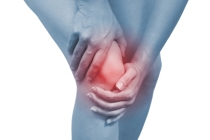 Rather than consuming a lot of medication, those living with arthritis are looking for ways they can help themselves. Over time, foods, supplements, remedies and exercises that can alleviate arthritic pain have gained credibility due to the growing amount of research into the area.
Rather than consuming a lot of medication, those living with arthritis are looking for ways they can help themselves. Over time, foods, supplements, remedies and exercises that can alleviate arthritic pain have gained credibility due to the growing amount of research into the area.
Foods to Help Ease Pain
Visits to your medical specialist often include a recommendation to eat more of certain foods like oily fish, for instance salmon and tuna, and less of others that can aggravate your condition. For example, gout sufferers are advised to dramatically cut their intake of rich, processed meats and fatty foods and to avoid drinking beer.
The role of allergies in specific arthritic conditions is also under the spotlight and research is being done into potential links.
Using Supplements
The benefit of vitamin and mineral supplements is much more widely accepted now as a result of ongoing research into the impact they can have on specific conditions. Specific vitamin and mineral supplements including Omega-3 Fish Oils, Glucosamine and Chondroitin Sulfate are recommended to those experiencing joint pain. There is also a growing range of combination anti-inflammatory supplements on the market with ingredients that can include dried ginger, cherry, willowbark, pineapple, papaya and turmeric.
Using Heat to Alleviate Pain
Soaking in a warm water pool, applying heat bags on swollen joints are time-honoured natural ways to alleviate pain. Depending on how tender or swollen a particular joint is liniment and heat rubs can be effective as well.
Gentle Exercising to Relieve Pain
Medical research indicates walking and gentle, stretching exercises like yoga can help keep you mobile by building strength, flexibility and balance while reducing pain.
The Role of Music in Managing Chronic Pain
Research on chronic pain management has found that listening to music you enjoy triggers the release of the chemical dopamine in the brain. Dopamine is a neurotransmitter sending messages to other nerve cells. It controls several hormonal systems, one of which has a major role in reward-motivated behaviour "strongly associated with other rewarding and motivating stimuli, such as food, sex, and certain addictive drugs….The more pleasing the listeners found the music to be, the less pain they felt."
The shift in focus from pain to pleasure plus certain personality factors, such as a tendency toward anxiety or the ability to become easily absorbed in activities, may determine the extent to which music can offer some relief. To read more about this, click here.









Join the Discussion
Type out your comment here:
You must be logged in to post a comment.